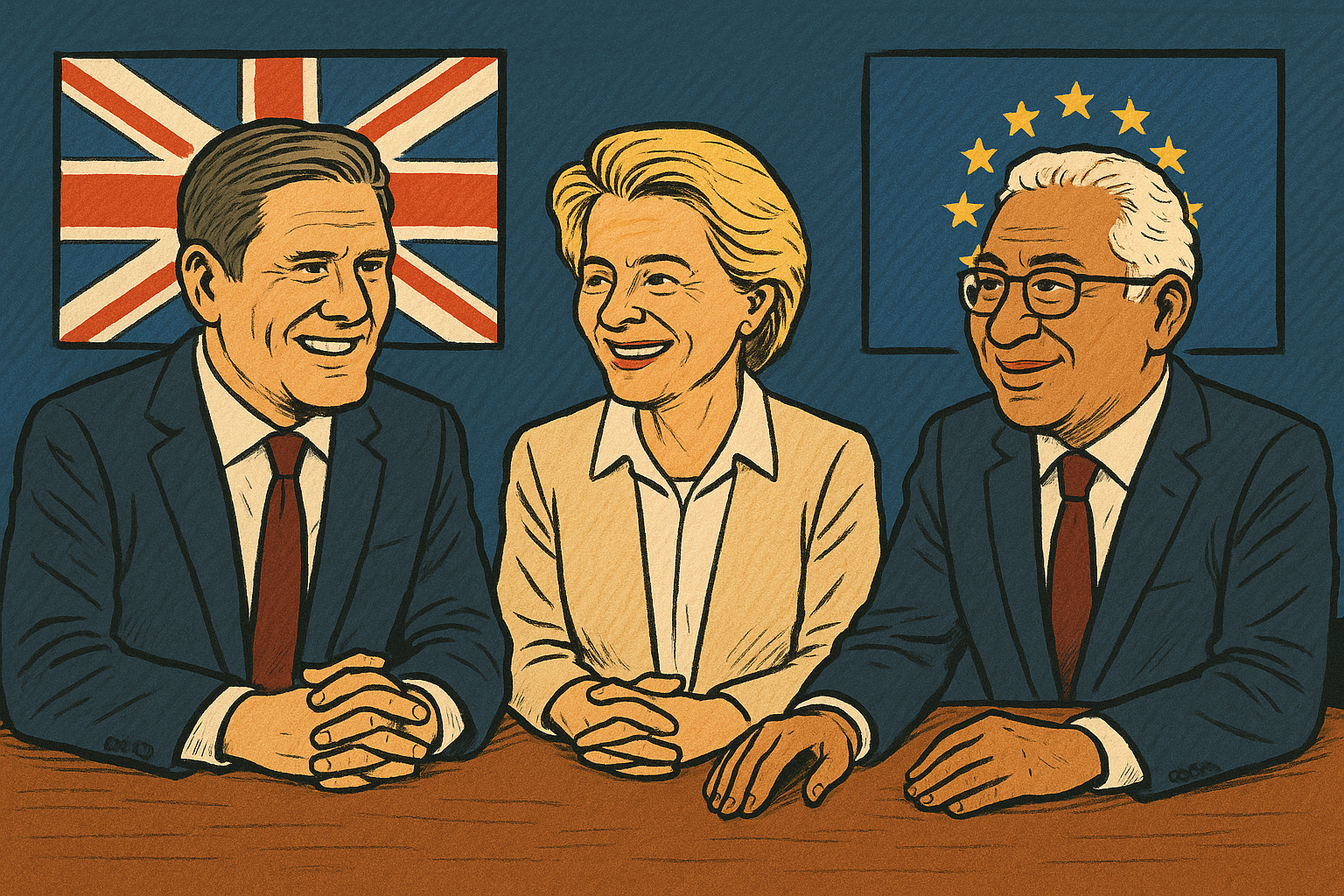The UK and the European Union have agreed their most comprehensive post-Brexit package since 2020, bundling trade, security and mobility measures into one politically rebadged “reset”.
Announced in London on 19 May, the accord is pitched by Westminster as a practical response to inflation and global tariff turbulence; Brussels frames it as proof that “Europe sticks together” in a less predictable world.
What’s in the deal?
- Sanitary & phytosanitary (SPS) accord — Paperwork and physical checks on plant and animal products will fall sharply. British exporters should regain friction-free access to EU shelves, while supermarkets are promised cheaper import logistics.
- Extended fishing access — In return, EU vessels will enjoy shared access to UK waters for up to 12 years. Scottish ministers have criticised the concession, saying coastal communities were “kept out of the room”.
- Security and defence partnership — UK firms can bid into the EU’s €150 billion European Defence Fund and participate in joint procurement projects, provided sensitive IP safeguards are met.
- Mobility and skills — A youth-mobility pilot and re-entry to the Erasmus study scheme are on the table, easing recruitment worries for universities and high-growth tech firms.
- Border friction fixes — Pet passports make a comeback, “shoes-on” airport security lanes will be trialled, and mutual emissions-trading links remain under discussion.
Downing Street forecasts a £9 billion GDP boost by 2040, largely from lower food costs and revived agri-exports. Brussels emphasises regulatory certainty and a united front against external tariff shocks — a nod to Donald Trump’s mooted 30% blanket duties on Chinese goods and the ripple effect they could have across supply chains.

Who gains — and who grumbles?
Retailers, hospitality groups and agri-food producers are early winners: simplification of SPS checks should shorten lead times and cut compliance costs on everything from shellfish to speciality cheese. Logistics operators expect smoother cross-Channel flows in time for the Christmas peak, though IT-system work still lies ahead.
The Association of Professional Staffing Companies (APSCo) welcomed the news, stating that it will aid skills growth and longer-term employment in core sectors.
Tania Bowers, Global Public Policy Director at APSCo, commented: “The UK has needed a stronger trade deal with the EU since it left the Bloc and while the finer details of any mutual youth mobility scheme may not be announced today, the current discussions suggest that the Deal will have a positive impact on the movement of young people to work and study, which should help the country compete on a more level playing field for talent once again.”
Conversely, fishing operators see little upside. EU boats will continue to share cod and mackerel grounds just as fuel subsidies fall away. Hard-line Brexit campaigners, led by Nigel Farage, have labelled the package “regulatory surrender”, citing ongoing European Court of Justice oversight of SPS alignment.
While most trade facilitations can be introduced under existing Trade and Co-operation Agreement mechanisms, officials concede that codifying new youth-mobility rules, emissions-trading links and defence-fund access could stretch well into 2026. Any change of government in either bloc — or renewed US tariff escalation — could slow ratification.
Bottom line for business leaders
- Supply chains — Food and agricultural importers should model lower border costs from Q4 2025, but build in contingency for IT delays during customs upgrades.
- Regulatory strategy — Expect tighter alignment with EU food-safety codes; plan for dual-compliance frameworks if you sell into both EU and US markets amid diverging rules.
- Capital programmes — Defence and clean-tech suppliers gain a new pipeline into EU budgets; review eligibility criteria and IP-sharing clauses early.
- Talent planning — Universities and high-growth firms can prepare for an easier Erasmus and youth-mobility visa route, potentially widening the graduate talent pool.
- Fishing and coastal industries — Revenue headwinds likely persist; diversification grants and on-shore processing investment may be preferable to confrontation over quotas.
For most corporates the agreement trims friction, not margins. Its real value lies in restoring medium-term policy certainty just as US-China trade tensions and domestic inflation threaten to cloud 2026 budgets.
Monitor enabling legislation closely, but begin baking the SPS changes into cost baselines now.




